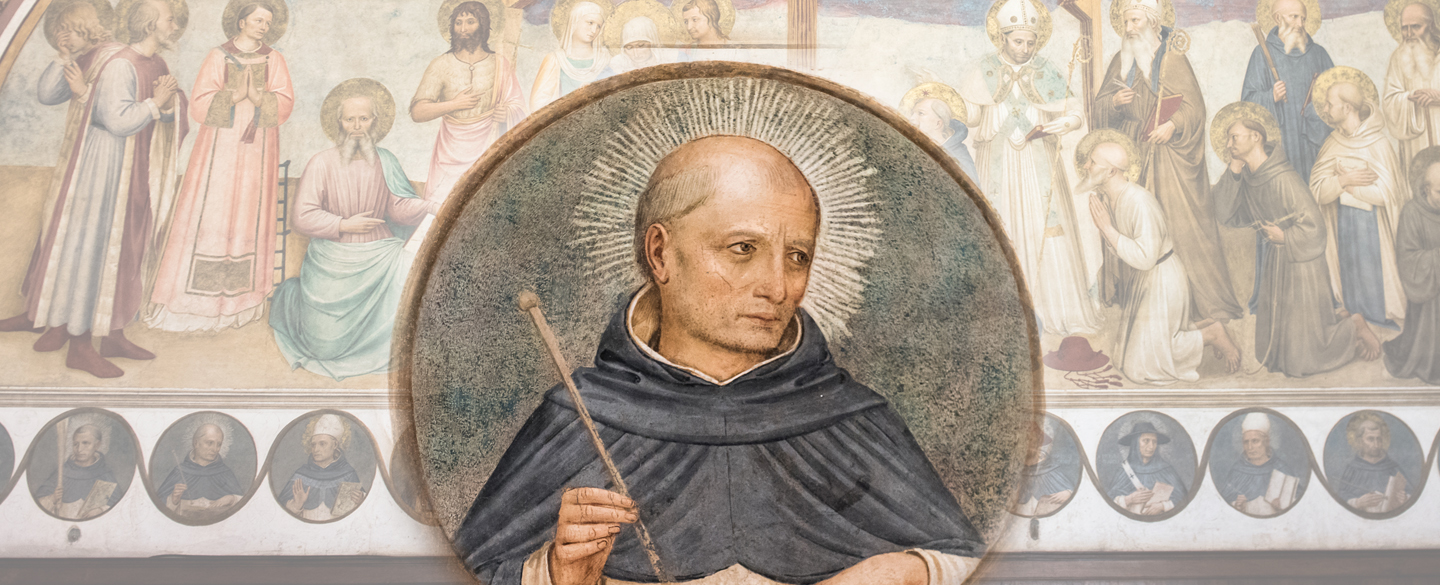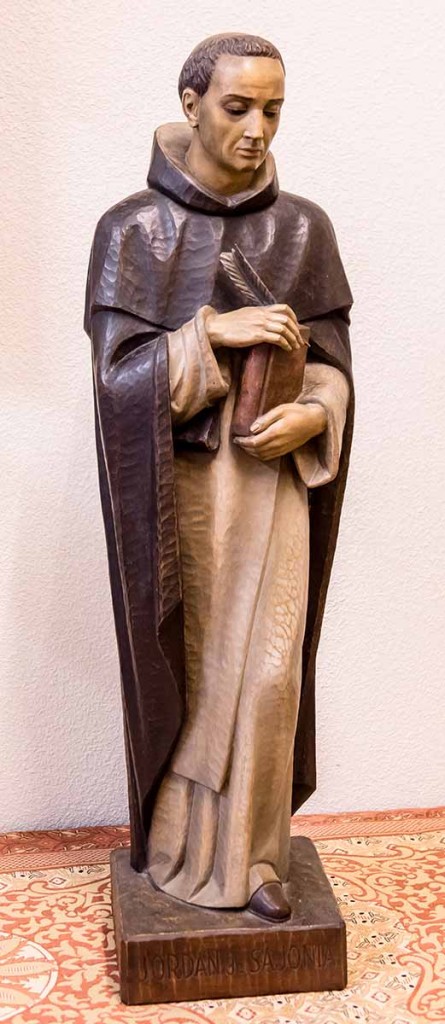
 The Dominican preacher Jordan of Saxony was a man to contend with in the Europe of the thirteenth century. We are told (with some exaggeration perhaps) that mothers would hide their sons when they heard he was coming to town; and (probably with genuine accuracy) that universities feared losing their best professors to the pull of his eloquence.
The Dominican preacher Jordan of Saxony was a man to contend with in the Europe of the thirteenth century. We are told (with some exaggeration perhaps) that mothers would hide their sons when they heard he was coming to town; and (probably with genuine accuracy) that universities feared losing their best professors to the pull of his eloquence.
Jordan had personal gifts and an energy that shook those whose lives he touched, leaving those with whom he came into contact somehow different. His words were a force that prompted men to think about the deeper things of their existence—and to desire what St. Paul called “the greater gifts” (cf. 1 Corinthians 12:31).
What could a man of the thirteenth century, even a very good man, have to offer us today? Ours is a fast-moving world, a far-advanced one in many ways. Would this European whose worldview was so far removed from our questioning and our efforts, discern what God is saying in our day?
The answer Jordan himself would give spans the centuries, because it has to do with a thirst that does not know the limits of time. To meet Jordan of Saxony is to meet a man on fire with zeal for God and for souls. This was a fire that consumed his whole life and gave him a practical energy that would not let him rest. Today we would say that Jordan possessed a remarkable charism, an extraordinary spiritual gift given him personally for the good of others. The Dominican Order grew quickly in its infancy because of him, and continues to gather strength from his enthusiasm.
We know little of Jordan’s life before he came into contact with the famous Dominican Reginald of Orleans, a contemporary of St. Dominic himself. Jordan was a successful young student at the University of Paris, already known for the unembarrassed witness of his holy life, when he first heard Reginald preach and met the Dominicans in Paris. God used this contact with the friars to enable Jordan to discern his own call to the Order, and once he entered, he gave all he had. Jordan’s spiritual and practical gifts were recognized immediately, and when he had worn the habit only two months he was chosen as a delegate to the Dominican general chapter in Bologna, Italy. The following year Jordan was elected a provincial superior, and when St. Dominic died Jordan succeeded him as the master general of the entire Order. The Order was only six years old! It developed rapidly under his leadership, however, growing both in membership and influence throughout Europe. Jordan was able to carry out the dream which St. Dominic had only begun before his death.
Even this brief sketch could make us suspicious that perhaps Jordan was simply a brilliant young man with leadership skills that enabled him to rise quickly in his chosen career, at the same time winning success for the Order. Closer consideration, however, gives us deeper insight into Jordan’s success. Youthful himself, he had a tremendous respect for the young and their desire to give themselves to something great. In his own restlessness to give himself, he had obviously come face to face with the restless love of Christ Himself, and he had surrendered to it. Jesus was real to Jordan, a Friend whom he’d come to know and love deeply in his life of prayer. Jordan understood the restless hunger of the world around him, and he couldn’t rest until that world would come to know this same Friend. It was this selfless love for Jesus Christ (the kind which St. Thomas calls the love of friendship) which gave Jordan the drive to preach, to spend his time with the young, to pour himself out in the building tasks required in a growing religious order. We are told that he added four new provinces, gained teaching positions for the friars at the University of Paris, and established the first general house of studies of the Order. Jordan also served as spiritual director to many, among them a young Italian noblewoman named Diana d’Andalo (who became a Dominican nun). In the midst of all of this he found time to write a number of books, including a life of St. Dominic (whom he knew personally and loved deeply).
Men of his day responded by the hundreds to Jordan’s zeal for Christ, some of them mere youths and others established professionals who felt the call of God through Jordan’s words and example. They were drawn to a life of holiness by this Dominican with a gift of preaching, who lived what he preached with such obvious joy. It was Jordan who initiated the custom of singing the Salve Regina in procession each night after Compline, to ask Our Lady’s protection of the brothers against temptations from the devil. This is a custom still practiced by Dominicans throughout the world and by our community each night.
Jordan of Saxony met an untimely death at the age of 47, drowning in an accident which occurred on his return from a pilgrimage to the Holy Land in 1237. In his vigorous life, Jordan extended what our Father Dominic had begun so carefully, and he opened avenues on which the Order would continue to struggle and to flourish. The secret that makes his message so relevant today? It is the secret of deep and personal friendship with Christ, a friendship which cannot be contained, but sets the world on fire.
Feast: February 13

 Back
Back